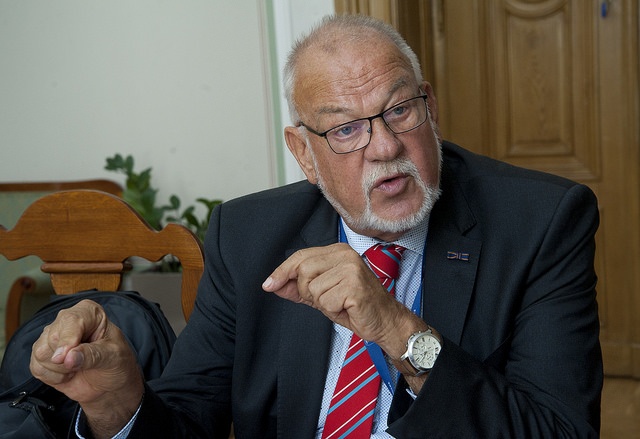When is the autonomy of science damaged? Interview with Ed Noort, vice president of ALLEA
Ed Noort: "It is cause for concern if politics or private companies attempt to interfere with academy activities in order to push their own agendas." The vice president of ALLEA also discussed president Trump’s effect on the scientific community as well as the admittance of the new and independent Turkish academy to ALLEA during his interview with mta.hu.
6 September, 2017
When does ALLEA regard science to be in danger in a given country?
This decision is influenced by a number of factors. We must begin with science financing, though this is not the most crucial element. We must not forget that most academies, including The Royal Netherlands Academy of Arts and Sciences, are supported by the state. However, it is our duty to protect the independence of science and to provide the current leadership with advice, whether the government asks for it or not. However, when political or private organizations try to influence the work of academies through financing in order to attain their own goals, we are quite right to question the autonomy of such academies. It is crucial to be able to vote on our membership regardless of state and private interests.
Can you name a country where the independence of the academy is seriously threatened?
It is no secret that we recently admitted the Istanbul Bilim Akademisi as a new member, which was founded by members of the Ankara Academy of Science (TÜBA) who had left the organization due to political reasons in 2011. They parted with the Academy because the Turkish government decided to appoint two thirds of the members themselves. At that time, ALLEA protested against this decision in a written statement. In response to the Turkish government's rulling, the most prominent scientists of the Turkish Academy decided to found Bilim Akademisi in Istanbul. TÜBA has already protested against admitting Bilim Akademisi because it is not an official state owned academy. But this is not a real problem, as being state-owned is not a prerequisite for membership: Germany delegated nine academies into our organization.
 Ed Noort Source: mta.hu/Tamás Szigeti
Ed Noort Source: mta.hu/Tamás Szigeti How has European scientific life been influenced since Donald Trump was elected president?
It is not enough to send a letter or tweet to Mr. Trump and we do not engage in such activities. We have strong connections with the American Academy of Sciences, and we help one another. Currently, the most crucial problem in the US is the treatment of global climate change and the spreading of false information, nowadays referred to as fake news. The most severe effect of Trump’s work is that people trust the results of science to a lesser extent. We are currently working to set up a committee to survey public confidence in science in the “post-truth” era.
In recent years the Hungarian Academy has been a prominent contributor when it came to scientific achievements within the Central Eastern European region. In your opinion, how can we avoid the emergence of a two-speed Europe within the realms of science?
The most active academies are in Western Europe. Heading east, the number of really active academies diminishes. However, the Hungarian Academy of Sciences, a founding member of ALLEA, is still an exception to this trend. ALLEA’s policy is to create a wide collaboration encompassing the whole of Europe. It is important to set up correct standards in order to compare scientific results of member states fairly. The grant system of the ERC might serve as a good indicator. Hungary is outstanding in the region concerning the number of ERC grants won. Unfortunately, as a member of the reviewing committee, I have seen several tenders in which the basic idea was brilliant, but the submitted documentation was poor hence we had to reject the application. However, in such a competitive situation, every factor counts and has to be taken into consideration.
